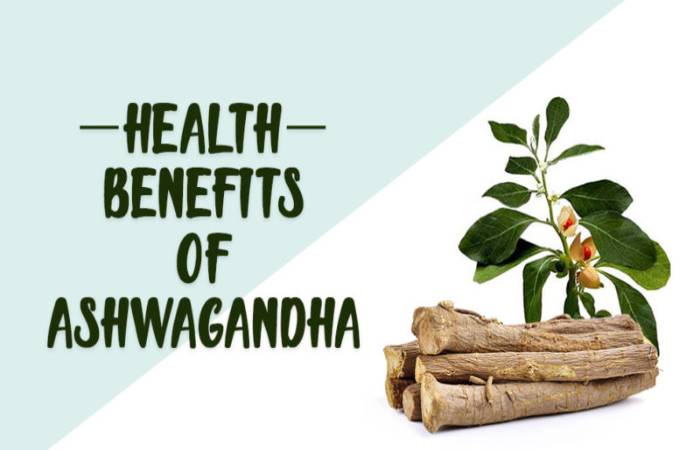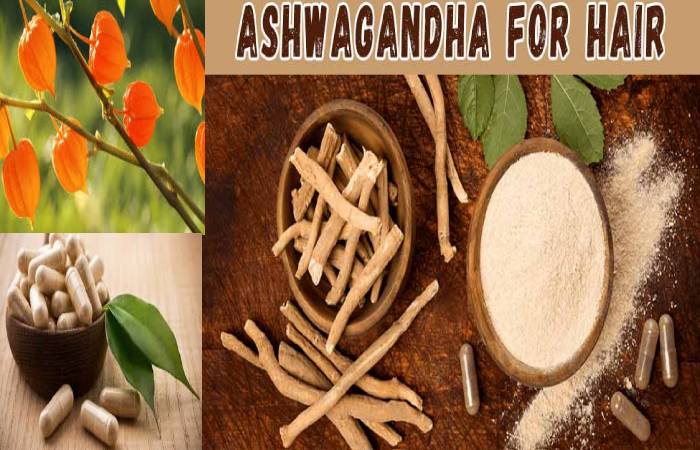Table of Contents
Ashwagandha Definition
Ashwagandha (Withania somnífera) is a short woody shrub belonging to the Solanaceae family.
The name ‘Ashwagandha’ comes from the Sanskrit language. It is the combination of the word ‘Ashva,’ which means horse and ‘Gandha’ which means smell.
It believes in giving the strength and vitality of a horse. E ‘is described as’ Indian ginseng’ in Ayurvedic and Unani medicine.
It also uses in African medicine for a variety of disorders.
What are the Benefits of Ashwagandha?
For Health

1. Immune System
- While this short and robust system has a host of benefits, the most widely recognized use of Ashwagandha is its ability to boost the immune system.
- Several studies have revealed that it increases the production of white blood cells in the body. Therefore, it helps prevent illness and disease.
2. An Aphrodisiac
- It is prescribed by Ayurvedic doctors to treat problems related to sexuality and infertility, and restores male libido, cure impotence, and increases sperm count in men.
- It is widely used in South Asia as a sexuality enhancement tonic and improves overall health and strength, resulting in better sexual performance.
- Furthermore, the herb calms the mind to elevate a person’s mood, increase sexual desire, and performance.
3. Adaptogen
- It is used as an adaptogen to help the body deal with stress and changing situations.
- This herb does not work on a non-specific toxic to normalize psychological function. And also, it works on the neuroendocrine system and the HPA axis.
4. Heart Health
- It increases heart health and reduces the risk of heart malfunction caused by various factors. And also improves blood circulation in the heart, then preventing blood clotting.
- It stabilizes blood sugar and cholesterol controls. It also helps maintain blood pressure levels in the body.
5. Blood Sugar Levels
- Ashwagandha helps regulate blood sugar levels, which helps to suppress sugar cravings. It very useful in treating type 2 diabetes.
For Skin

1. Signs of Aging Struggles
- Ashwagandha contains high antioxidants that savage free radicals to fight the signs of aging like wrinkles, dark spots, wrinkles, and blemishes.
- It also protects against skin cancer.
2. Wound Healing
- It is beneficial for the treatment and healing of wounds. The leaves of this plant provide a healing poultice that heals wounds quickly.
- Grind Ashwagandha roots and make a smooth paste with water. Apply this topical paste on wounds for relief.
3. Treat Dry and Rough Skin
- Ashwagandha is useful for treating keratosis, a condition that shows to rough and dry skin.
- And also, consume three grams of Ashwagandha with water twice a day to get rid of this skin condition.
4. Reduces Cortisol Levels
- High levels of the hormone cortisol in the body can wreak havoc on your skin. It inhibits the production of structural protein necessary for healthy skin.
- Ashwagandha has shown to lower cortisol and increase DHEA, a precursor to the hormone estrogen and testosterone.
5. Stimulates Collagen Production
- Ashwagandha contains steroidal compounds that can increase estrogen levels in the body.
- DHEA and estrogen help keep skin youthful and maintain itself by stimulating collagen production and improving its natural oils.
6. Skin Toner
- You can prepare ashwagandha skin toner to keep your skin healthy.
- And also, take 1 teaspoon of dried ginger, 2 teaspoons of dried ashwagandha root, and 1 teaspoon of dried lemon peel.
- And also, boil all these ingredients in 200 ml water, and use this as an infused toner to achieve smooth and glowing skin.
7. Fight Inflammation
- Ayurvedic healers have highly recommended the use of Ashwagandha for inflammatory skin disorders, including acne.
- It also contains compounds known as withanolides that inhibit S. aureus bacteria extracts, a significant cause of skin inflammation.
For Hair

1. Hair Loss Controls
- Stress is a significant cause of hair loss in men and women. And also, ashwagandha controls hair loss by reducing cortisol levels in the body.
2. Promotes Healthy Hair
- Ashwagandha improves digestion and removes toxins from the body, therefore promoting healthy hair.
3. Prevents Premature Greying
- Ashwagandha inhibits the loss of melanin in the hair to prevent premature graying. It also contains tyrosine, an amino acid, which stimulates the production of melanin in the body.
- The antioxidants in Ashwagandha effectively prevent corrosion of materials, reducing the possibility of premature aging.
4. Stimulates Hair Follicles
- Ashwagandha is also used in herbal shampoos and conditioners to stimulate hair follicles and maintain hair health.
5. Avoid Infections
- Ashwagandha’s regular consumption strengthens the immune system and helps the body rid itself of infections and diseases. And also, it promotes the overall health of the body, including hair health.
6. Activate Hair Follicles
- Ashwagandha improves blood circulation to the scalp and active hair follicles, accelerating hair growth.
7. Prevents Damage
- Ashwagandha contains high amounts of antioxidants that protect our bodies from free radicals that damage cells.
- Thus, regular consumption of Ashwagandha strengthens hair, making it stronger and less prone to breakage.
8. Dandruff and Other
- And also, Ashwagandha’s anti-inflammatory properties are useful for treating scalp conditions such as dandruff, scalp psoriasis, and eczema.
Nutritional Value of Ashwagandha
Ashwagandha is rich in iron, antioxidants, tannins, potassium nitrate, fatty acids, and glucose.
It also contains steroidal alkaloids – Sominine, Somniferine, withanolides, and Anferine. And also, it is a rich source of flavonoids, lactones, and acyl sterol glycosides.
What are the Uses of Ashwagandha?

- Ashwagandha uses for therapeutic purposes in Ayurveda. And ‘considered a powerful’ Medhya Rasayana ‘herb.
- It implies that Ayurveda rejuvenates aspects of memory-mind, recollection, and understanding.
- Ashwagandha root and berries are used to prepare tonics and capsules. And also, liquid tincture Ashwagandha uses as a medicine.
- The active ingredients in Ashwagandha tend to break down in power when used in a tincture form. So, the powder is more preferred than dye.
- In addition to its medicinal use, Ashwagandha also consumes in the form of tea. And also, its dried root is boiled with tea for 15 minutes for a refreshing drink.
- And also, it in capsule, and liquid form is very widespread now. It is available in herbal health stores and through global supply sources around the world.
Side Effects of Ashwagandha
There are no such debilitating side effects, but they can lead to health problems if consumed in large amounts.
It is possible that after a week of use, you may feel a sudden rise in body temperature.
It can also cause a drop in temperature, leading to cold, chest pain, and a runny nose. Above consumption, the side effects are mentioned in it below:
- And also, it has diuretic properties that can cause kidney damage in some cases.
- It can also cause diarrhea when taken in large amounts. Severe abdominal pain can also occur in the case of high doses.
- It has also stimulated the immune system’s properties, making them unsuitable for people with autoimmune diseases such as HIV and AIDS.
- Organ transplant patients should not consume Ashwagandha as it can prolong the recovery time.
- It is never prescribed for pregnant women and nursing mothers, as it can interfere with the baby’s nutrition.
- It can also cause intestinal problems in pregnant women and is used with other sedatives and tranquilizers, which can be very harmful to the body.
- Another possible side effect of it is sudden weight gain. And also, using it alone is not recommended.
Ashwagandha in Combination with Other Plants
It can combine with various other plants due to its many benefits. And also, it works excellent with goji berry, Rhodiola.
And also, Ginseng, Tribulus, Gingko Biloba, Thyme, Eucalyptus, Cannabis, Turmeric, Licorice, and many others.
Doses of Ashwagandha
- The general dose of this plant is approximately 4 – 5 grams per day.
- It often sells in capsule form. And also, take two capsules a day in the afternoon.
- To prepare the infusion and decoction, take 2 grams of dried root from an injection.
- Boil the plant for 15 minutes and let it infuse for 10 minutes. And also, do not consume more than 2 cups per day decoction.
- Thus, it has embalming properties and natural powers to heal the body and spirit.
- And also, consuming it after consulting your doctor will see a change in your afflictions. Ashwagandha is indeed a miracle plant. Stay fit; stay healthy!
Also Read: What is Yogurt? – Definition, Benefits, How to Prepare, and More
MORE INFO:- itechits

